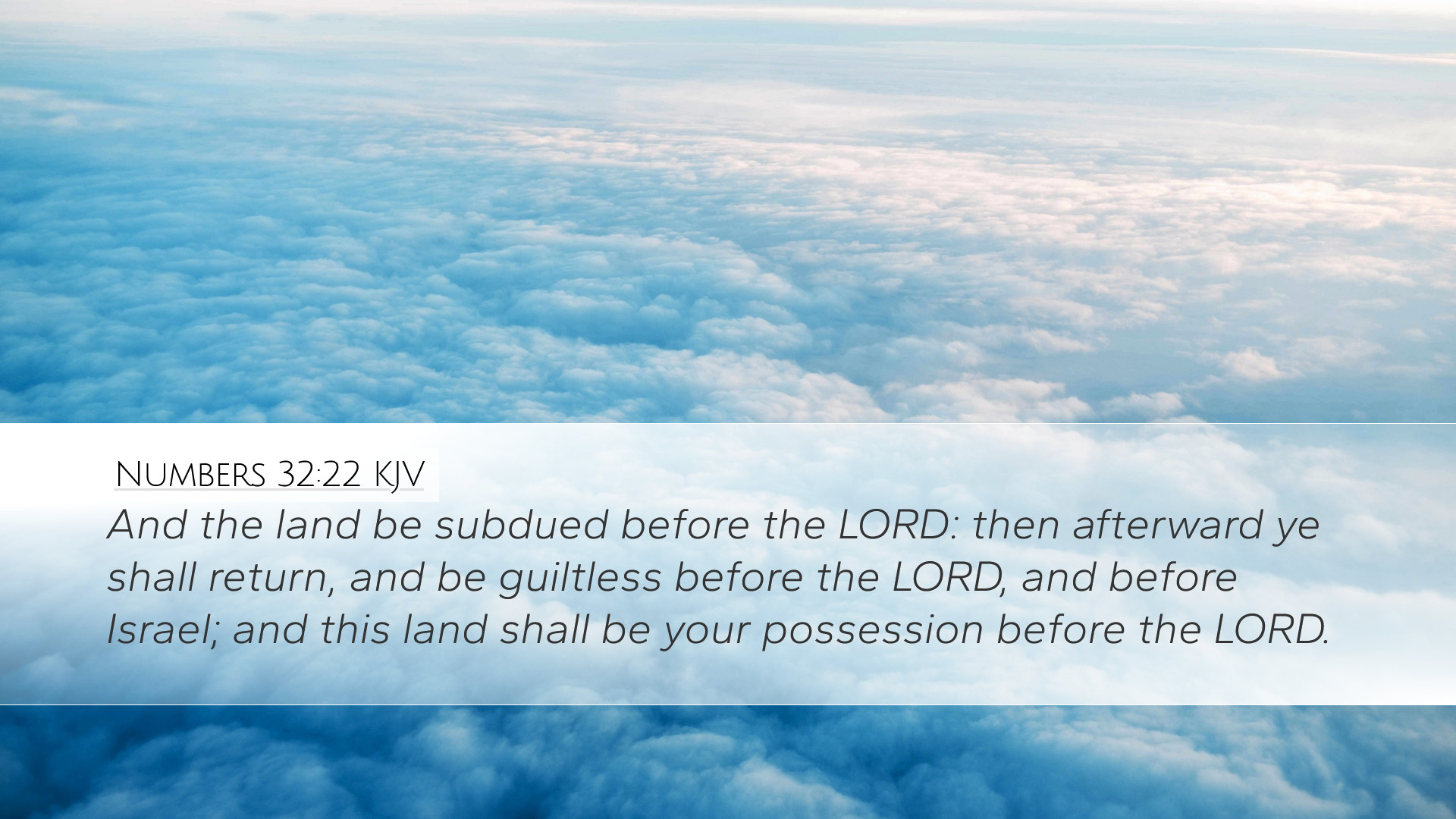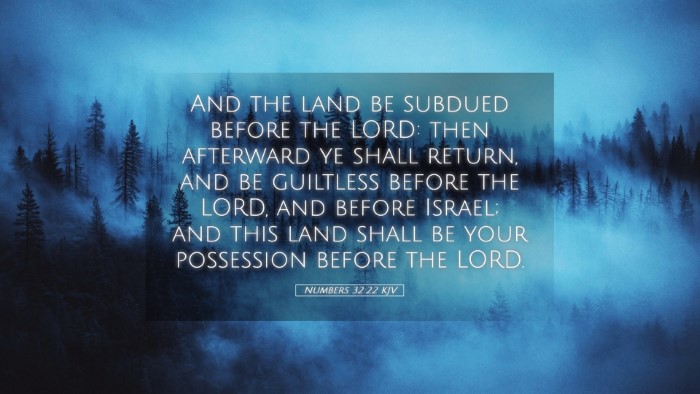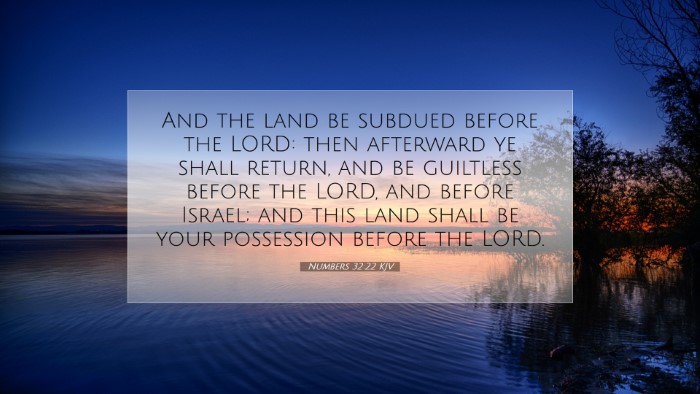Commentary on Numbers 32:22
Verse: "And the land be subdued before the Lord, then afterward ye shall return, and be guiltless before the Lord, and before Israel; and this land shall be your possession before the Lord."
Introduction
This verse is part of a larger narrative where the tribes of Reuben and Gad, along with half of the tribe of Manasseh, seek to settle in the land east of the Jordan River. They make a commitment to help the other Israelites conquer the Promised Land before returning to their chosen inheritance. This commentary aims to provide insights into the implications of their promise and the broader theological reflections found within this passage.
Theological Themes
The themes present in this verse include:
- The Importance of Community Responsibility: The tribes of Reuben and Gad express their willingness to fulfill an obligation to the wider community of Israel, underscoring a profound sense of corporate identity.
- Obedience and Accountability: Their commitment to assist in the conquest reflects the importance of obedience to God's commands and the principle of accountability among believers.
- Possession and Inheritance: The discussions around land highlight the significance of inheritance in biblical theology, symbolizing both physical and spiritual possessions.
Commentary Insights
Matthew Henry's Commentary
Henry emphasizes that the willingness of these tribes to help others indicates a strong Christian virtue. He reflects on the importance of shared responsibility in the community of faith. The call to "be guiltless" suggests that fulfilling their promise is a matter of integrity before God. Their readiness to help is seen as an act of faith, recognizing that their promised possession is contingent upon obedience to the Lord.
Albert Barnes' Notes
Barnes points out the conditions attached to the promise made by the tribes. He notes that the act of subduing the land is not merely a physical conquest, but an act of spiritual dedication to God. The phrase "guiltless before the Lord" highlights the seriousness of their vow. Barnes asserts that failure to fulfill this promise could lead to spiritual consequences, thus making their commitment paramount for both individual and communal faithfulness.
Adam Clarke's Exposition
Clarke provides a detailed historical context, mentioning that the lands east of the Jordan were fertile and appealing to the tribes. He explains that despite their personal desires, they recognized their duty to support the collective mission of Israel. Clarke also notes that the statement about being "guiltless" relates to both divine and communal expectations. He draws attention to the concept of sharing burdens (Galatians 6:2) as exemplified in this commitment by the tribes.
Practical Applications
This verse encourages modern readers to consider their responsibilities within their faith communities:
- Active Participation: Like the tribes of Reuben and Gad, believers today are called to actively participate in the mission of the Church, supporting one another in spiritual and practical endeavors.
- Commitment to Promises: The commitment made in this passage serves as a reminder that promises to God and one another should be kept, reflecting integrity and faithfulness.
- Community over Individualism: In an increasingly individualistic society, this verse highlights the necessity and value of a communal approach to faith where collective interests take precedence.
Conclusion
Numbers 32:22 serves as a poignant reminder of the importance of community responsibility and the serious nature of commitments made before God. The insights drawn from the public domain commentaries deepen our understanding of the text and its implications for the life of faith today. As modern believers reflect on this passage, they are encouraged to embody these principles, ensuring that their actions align with God's will for both themselves and their communities.


